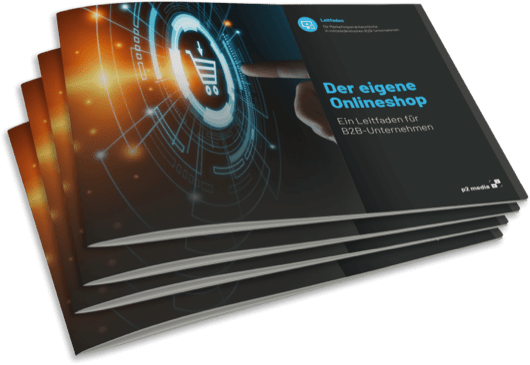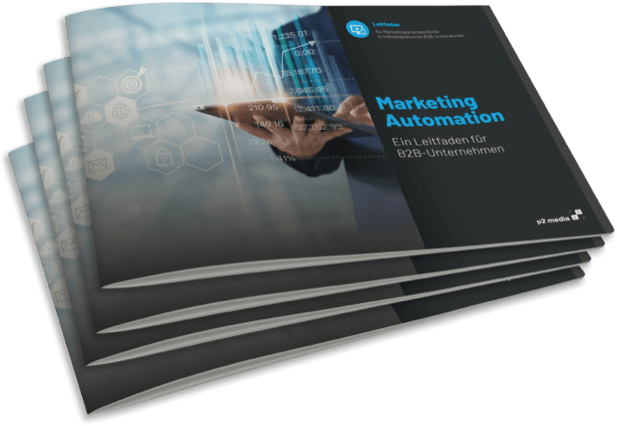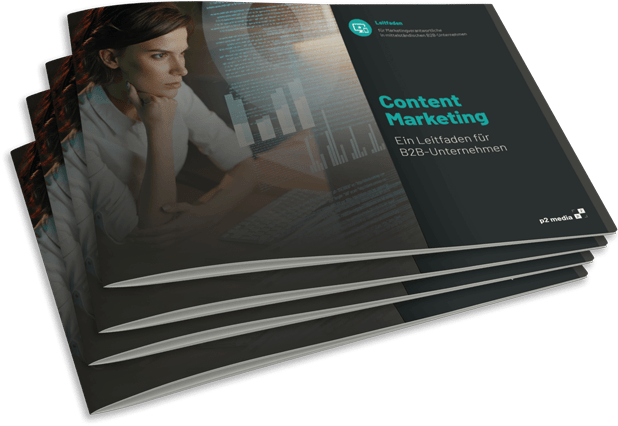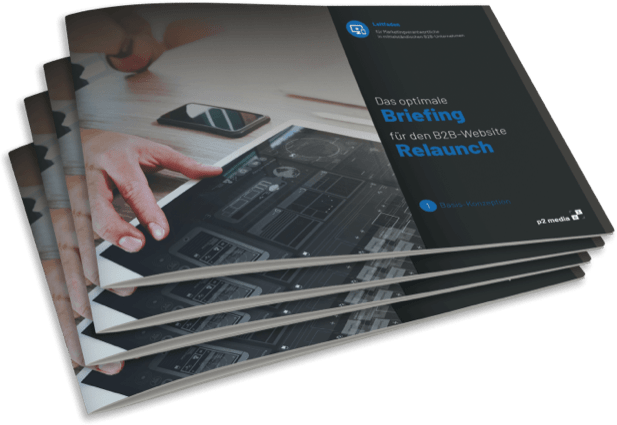SEO, of course - but why is a good online shop ranking so important and what does it take to achieve it? The high relevance of SEO is obvious:
Today's customers usually first search the web for relevant information and then increasingly for direct opportunities to complete corresponding purchase processes online.
Google is often the starting point of the digital customer journey. Accordingly, it is highly relevant for online shop operators to position their online offers optimally within the Google ranking. This all applies to both the B2C and B2B sectors.
What you need to pay special attention to and how a useful SEO strategy should be structured at the base, we have summarized for you below.
What are the advantages of SEO for the online shop?
Before you implement concrete SEO measures, it is important to know their specific benefits.
This is the only way you can operate SEO in a targeted manner and work efficiently towards achieving these benefits.
The effort you need to calculate for effective SEO is actually limited, in contrast to many advertising measures.
Even laymen can achieve quite a bit by considering the most important principles of SEO.
For maximum success, however, a holistic reference to the entire online marketing and a precise knowledge of the enormously diverse possibilities as well as the associated (change) effects are always necessary.
Corresponding services of a professional agency cost money, of course, but ultimately pay off in the long run.
Google is the most used search engine worldwide. In Germany, far more than 95 percent of all mobile search queries are now attributable to it.
Among other things, the search engine leader - both B2C and B2B - is preferred when it comes to determining options for new purchases of any kind.
Here, as a rule, only the first search results are really often accepted. As a result, if your online shop is offered to customers and interested parties precisely on these top positions, you are practically guaranteed enormous traffic and accordingly many (potential) buyers.
Thanks to analytics tools, also explicitly for SEO, you always have your successes, but also failures in e-commerce at a glance.
On the one hand, this is extremely useful, as you can adjust your SEO strategy accordingly - should there be any problems at any point - and on the other hand, you can derive further potential from successful measures.
Furthermore, the good measurability ensures that you get the chance to pursue your SEO goals absolutely efficiently.
If you succeed in positioning yourself high in the Google ranking in all search contexts of your target group with the help of SEO for your online shop, your brand is very present for your target customers. This alone supports your branding massively.
The likelihood is already high under these conditions that your company is seen as an outstanding expert in your field and that people will ultimately be particularly happy to use your services.
In contrast to advertising measures, which should usually first arouse the interest of (potential) customers, SEO refers to an already quite clear purchase intention.
After all, your target group is already searching Google for certain goods or services or related facts.
You "only" have to pick them up appropriately in SEO and the closely related content marketing.
SEO measures or the search engine optimization itself, show relatively slow effect.
However, once they take effect, the corresponding effects remain in the long term. Nevertheless, it is essential to stay on the ball and to consider SEO as an ongoing process.
Because once the great success is achieved, it remains relatively long - but without the right follow-up measures or specific further developments, it can not be maintained.
What do OnPage SEO, OffPage SEO
and technical SEO mean in e-commerce?
Before we finally come to the SEO measures, it is important for the overall understanding to be able to classify them correctly in the SEO. Search engine optimization is divided into three areas - OnPage SEO, OffPage SEO and technical SEO.
The OnPage SEO concerns all measures, which are carried out directly on the pages of your online shop. This is actually where most SEO opportunities arise.
OnPage SEO includes, among other things, the optimal structuring of the individual pages of your online shop, the integration of the right keywords in the most important places and basically the provision of all (information) areas that the respective target group needs/expects or that enable them to easily use your shop with the highest added value.
The counterpart of OnPage-SEO is OffPage-SEO. It takes place away from your own online shop.
The focus here is on the promotion of backlinks, i.e. links that lead to your online shop from websites with similar topics and/or sectors. Backlinks are still one of the top three ranking factors of Google. Corresponding link building is often described as the supreme discipline of SEO/search engine optimization and is less relevant for the beginning due to its complexity as well as not least the specific risks of a penalty that threaten in the event of a violation of the Google guidelines on the part of the search engine.
Other fields of OffPage SEO, but which also do not necessarily belong to the basic equipment of SEO, are social media ratings, social signals and a beneficial brand management.
Technical SEO, which particularly focuses on creating an ideal server environment, technical security, and fast loading times, is practically the foundation for truly all-around efficient as well as effective search engine optimization.
For example, it is never possible to present online content advantageously without fast and optimally set servers and thus benefit from a good user experience, which is indispensable for SEO in today's e-commerce.
Which SEO measures are necessary for a good
Onlineshop ranking?
Of course, we cannot provide you with a comprehensive SEO strategy for your online shop at this point, as this must be individually adapted. Rather, it is about providing you with an overview of the SEO measures that must be considered in any case.
How these are designed in detail and whether or which supplementary options for SEO are to be considered, only results from the holistic consideration of your individual company requirements.
1. SEO keywords - research and constant keyword monitoring
At the beginning of your SEO for the online shop, is the research of the optimal keywords. Keywords are still a very important factor for the Google ranking.
On the one hand, they help the search engine to quickly and correctly rank pages in specific search contexts. On the other hand, they also form central orientation points for your (potential) customers, which, if everything is done correctly, contribute greatly to the creation of a good user experience, which is perceived positively by Google.
Keyword research is essentially about finding out which words your target audience is likely to prefer to type in to find goods or services in your industry.
You can find the optimal keywords specifically by looking at the search behavior of your target customers and analyzing the keywords used by your top competitors.
Keep in mind that keyword relevancies can change. Continuous keyword monitoring is therefore highly recommended.
2. the SEO basics
The correct use of headlines actually has great potential in SEO. Headlines with relevant keywords give Google on the one hand information about what the respective page offers and on the other hand whether the content is well structured.
Thus, there should only be one H1 headline on each page. All other headlines may appear more frequently, but must be logically subordinated for best results. Basically, it is important to structure longer texts with subheadings to make it easier for readers to absorb the relevant information.
The creation of a good user experience plays an important role here and also in the following measures for maximum success in SEO.
Images and videos should also not be ignored.
Visual impressions are extremely important in every online shop. They convince prospective customers directly and promote - also B2B - the identification with the respective offers.
However, images and videos can only develop their full effect if they convince Google and your (potential) customers not only in terms of content, but also through fast loading times, meaningful descriptions with important keywords and appropriate meta information.
Internal linking allows you to specifically highlight individual pages of your online shop.
This shows both your (potential) customers and Google which pages are particularly worth looking at and perhaps ranking prominently.
Furthermore, well placed internal links help your visitors and also the search engine to find their way.
The snippet is the first touchpoint your (potential) customers have with your online shop on Google. If a page of your shop appears among the search results, searchers see the title, the description and the URL of the respective page.
Ideally, these components include the most important keywords and offer a good overall impression of what the page in question contains. In particular, the keywords in the URL and title are once again important or directly ranking-relevant factors for Google.
The description is only an indirect ranking factor, but it should not be neglected, because you can tell your (potential) customers here very specifically what they expect and thus you increase the chance that the respective page is really opened.
Today, Google actually primarily takes the mobile variant of websites and online shops as an evaluation criterion for its ranking.
This alone leaves no doubt that you must offer your shop mobile-optimized.
In addition, a good mobile implementation naturally contributes to a positive user experience.
SEO and content are very closely related today:
As already mentioned at the very beginning of this guide, (potential) customers need value-added information about the respective product before they even consider buying it.
If you offer exactly such facts in your online shop, the corresponding pages and the products associated with them will probably be used particularly intensively or even purchased. For Google, this is a clear sign of a good user experience, which also has a positive effect on the ranking.
To deliver the perfect content, you need to know exactly what information your (potential) customers need. The most efficient way to find out is to create specific buyer personas - profiles of your typical buyers - that highlight their problems and needs that you can solve with your services.
Many (potential) customers also reach your offers via the category pages of your online shop. Thus, these must also be ideally optimized for a good user experience.
More detailed category information, filter options and a search function are very helpful features in this context.
It is important to know that category pages are generally displayed more often in Google search than product pages. Users simply search for general terms, such as "wedding suit", more often than for specific brands or models.
Accordingly, you should find out which categories your online shop definitely needs or match them with the typical search terms of your (potential) customers.
In addition, it is worthwhile to include a longer category text under the products of a category, which serves as orientation for your target customers, but in this case especially for Google. With this, you can actually push the traffic generation considerably.
If visitors of your online shop open a product page, they usually have an increased interest in the respective product or service, but still need to be convinced to buy it.
If you manage to do this regularly, Google interprets a high relevance here and the respective product page will probably be placed prominently in the ranking for applicable searches.
The structure of really convincing product pages is once again based on what (potential) customers want in this regard. They should convey as comprehensive a textual and visual informational impression of the respective product as possible and again aim for a good user experience.
The better your visitors find their way around your online shop, the more frequently and intensively it will be used. You probably already guessed it - usability also has an effect on the quality of the user experience.
Important elements for a good usability are generally clear structures, a catchy navigation, target group specific categories, a targeted search function and a sufficient mobile optimization.
Most of these elements can only be optimised at a later stage with great effort. Therefore, you should already aim for good usability when setting up your shop.
Conclusion
In this guide, we have shown how important SEO is for success in e-commerce and which SEO measures you should always consider at the base.
If you follow the strategies described here for SEO, you have a very good foundation on which to build further. Reaching the top of the rankings will almost certainly require much more sophisticated actions due to the ever-increasing competition on Google alone.
Keep in mind: Due to the immensely diverse ranking factors that Google takes into account today, SEO measures alone can never lead to top results.
Only by taking a holistic approach can you really get the most out of your online shop ranking.
How we can support you with e-commerce:
- Development of atargeted strategy taking into account your individual goals and target groups, the choice of the right shop system for your needs to the professional implementation of your online shop.
- Joint development of an SEO strategy,social media marketing measures or native advertising formats.
- Support with content production in order to direct qualified traffic to your site and thus draw attention to your products.
For a successful and comprehensive e-commerce strategy, we are also happy to advise you on the following topics:
Oliver Parrizas will be happy to answer any questions you may have on the subject. +49-800-911-91-91













